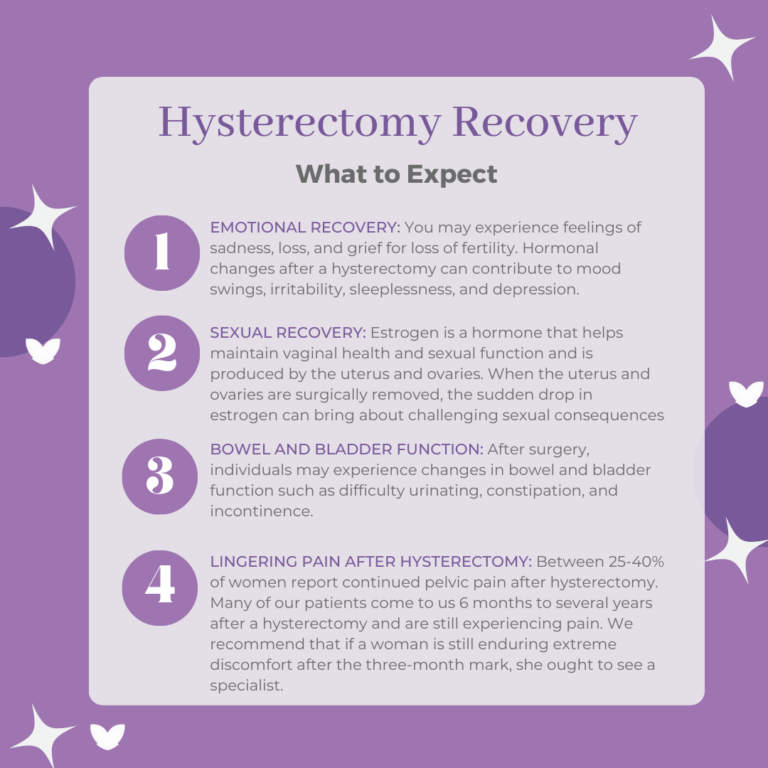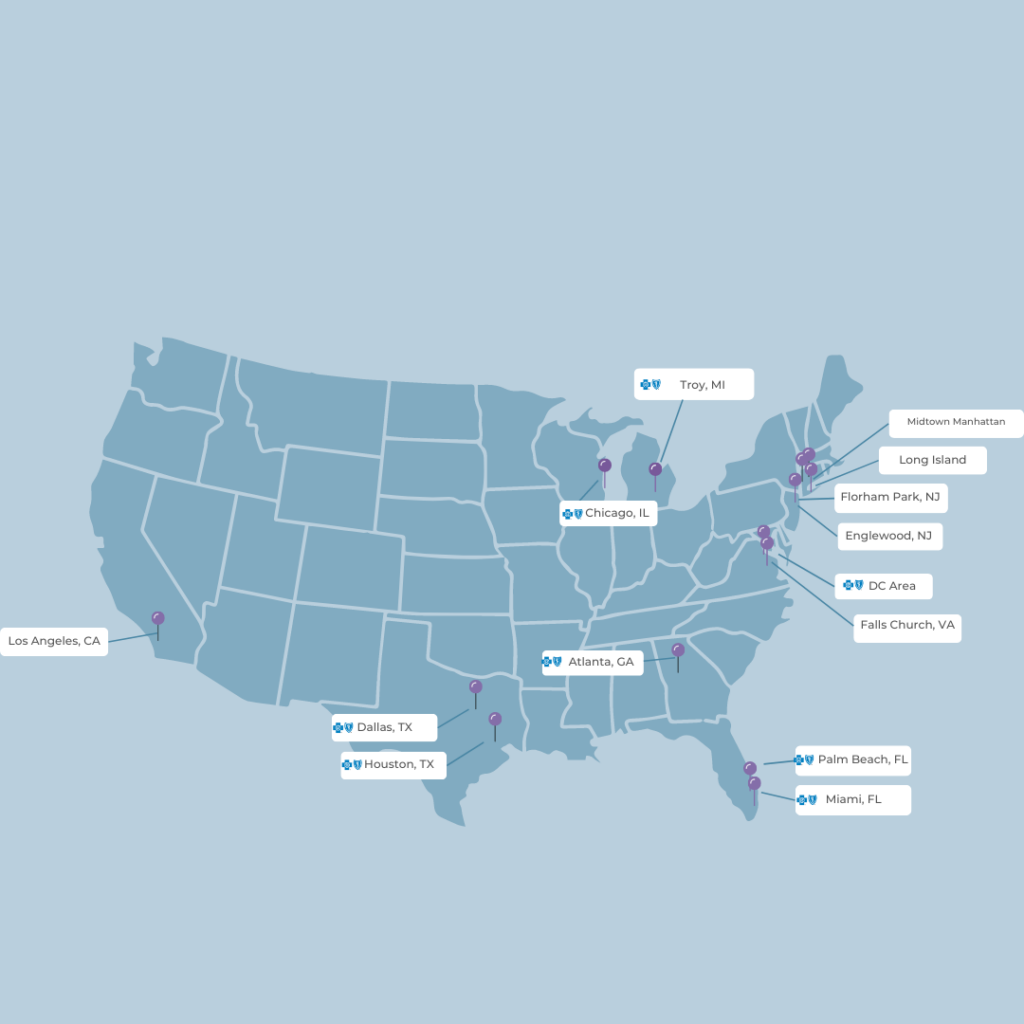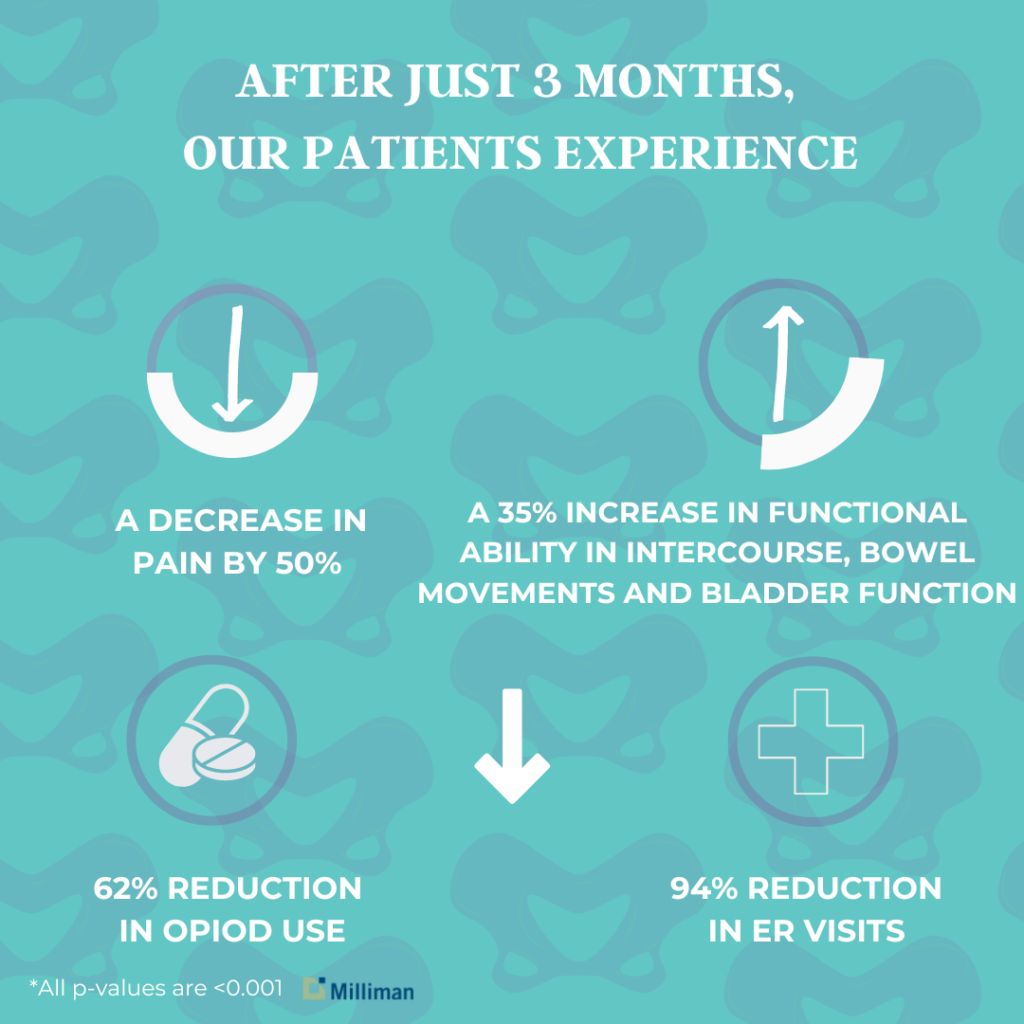BY ALLYSON AUGUSTA SHRIKHANDE, MD, CMO
Did you know that a hysterectomy is the second most frequently performed surgery for women in the United States?
While a common procedure, with some degree of pain following is to be expected, persistent pain is never normal. At PRM, we see patients with persistent pelvic pain and are on the front lines of this issue and we have to say: It is common to have persistent abdominal-pelvic pain after a hysterectomy. There are many reasons for this, including:
- Secondary pelvic floor muscle guarding and spasms from the pelvic surgery
- Persistent nerve inflammation and irritation from having pelvic pain for so long
- Scar tissue formation
- The use of opioid pain medications after a hysterectomy
…to name a few.
Where Can You Experience Pain After A Hysterectomy?
This is it not an exhaustive list but the most common areas that women experience pain after a hysterectomy.
- Back Pain
- Cramps/Ovary Pain
- Stomach Pain
- Leg Pain
- Bowel Pain
- Bladder Pain After Hysterectomy
- Urinary Burning Pain/Urgency/Frequency
- Pain with Intercourse
- Constipation/Painful Bowel Movements (The use of opioids post-op can cause painful constipation and contribute to pain with bowel movements)
It’s important to note that secondary pelvic floor spasm after a hysterectomy can be your body’s reaction to the pelvic surgery and treating the pelvic floor spasm can help resolve the pelvic pain post-hysterectomy. Treating the pelvic floor muscle spasm post hysterectomy can also help with painful bowel movements – a common symptom patients experience. If your pelvic floor muscles are less painful and tight then bowel movements can happen in a more relaxed and comfortable fashion.

Treating Pain After Hysterectomy
At PRM, we like to remind patients that the amount of time you experience pain after a hysterectomy can vary based on each person – but remember that abnormal pain, or pain that persists is always worth mentioning to your doctor.
Patients undergoing a hysterectomy have been suffering with pelvic pain for many months to years, their pelvic nerves in this chronic pain setting have become sensitized and inflamed. Often, this persists post-hysterectomy as they were in that state for so long. Treating the pelvic nerves post op can help with the abdominal-pelvic pain symptoms after a hysterectomy. Treating the inflamed pelvic nerves post-hysterectomy can also help with bladder pain and pain with bowel movement as these nerves are involved with bladder and bowel movement pain.
Every time a patient undergoes surgery scar tissue forms as part of the body’s natural healing process. This scar tissue may irritate nerves and fascia in the abdomen and pelvis and contribute to nerve and myofascial abdominal-pelvic pain.
Luckily, at PRM we can treat these symptoms and get patients living their best life after a hysterectomy.


Would You Like to See a Specialist?
Call us at (646) 481-4998 or click to request a regular appointment.